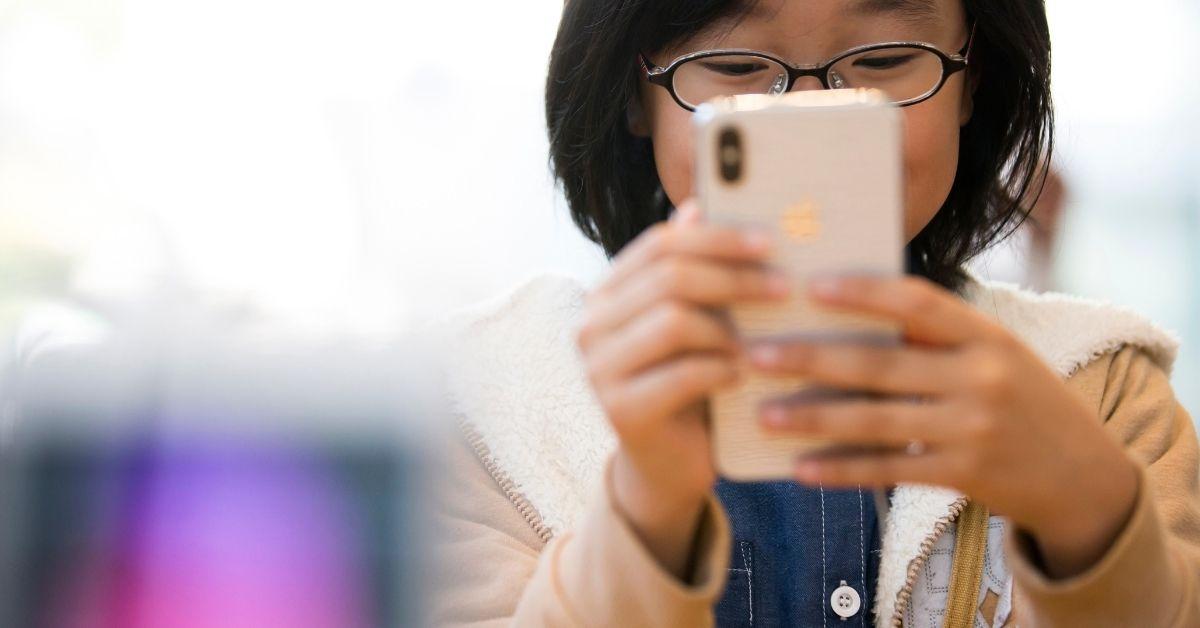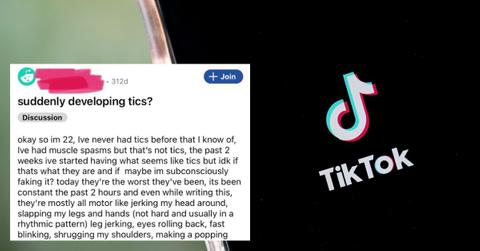Can Watching #Tourettes TikToks Cause Someone to Develop Tics? Doctors Think So
Published Oct. 21 2021, 2:50 p.m. ET
I think we can all agree that spending too much time on social media is not good for anyone's well-being. Not only does staring at a screen for hours at a time strain the eyes, but social media can also negatively impact mental health. While this has been argued for years, the truth further unraveled in Sept. 2021 after it was leaked that Facebook had purposefully stayed quiet about internal research that suggested Instagram was making body-image issues worse for teenage girls.
But Instagram isn't the only platform that's currently raising health concerns. The Wall Street Journal recently published a piece on how TikTok may be causing teens to develop tics. The medical community began investigating this claim after seeing a spike in childhood tic cases during COVID-19. What did all these new cases have in common? Well, the patients were all on TikTok.
But how exactly can watching TikTok videos lead someone to develop tics? Keep reading to find out more.

What are tics and why are TikTok users developing them?
Tics are sudden and uncontrollable twitches, movements, or sounds that people do repeatedly, according to the Centers for Disease Control and Prevention. For example, someone with a motor tic might blink their eyes over and over again. Or someone with a vocal tic might make involuntary grunting sounds.
Now, you’re probably wondering how watching videos of Noodles the pug or a salmon rice bowl tutorial can lead to tics? The answer is it doesn’t. That's not the content that's connected to the surge in childhood tic cases. Rather, it's the thousands of videos created and posted by individuals with Tourette’s syndrome that have become a conflict.

According to the CDC, a person can be diagnosed with Tourette’s syndrome if they have two or more motor tics and at least one vocal tic (but these tics don't necessarily have to occur at the same time). A person may also be diagnosed with Tourette’s syndrome if they have tics for over a year, developed tics before turning 18 years old, or have tic-like symptoms that are not directly related to a medication or other medical condition.
Because TikTok allows users to have a platform, many users who have Tourette’s have used the app to educate others on their condition. Some share videos about their struggles, while others discuss coping strategies. The topic of each video isn't as important as the fact that individuals who do not have tics or Tourette’s syndrome are consuming these videos at a high rate. Then, these users are gradually and unknowingly developing tics themselves.
Doctors began studying this relationship in Jan. 2021, when videos containing the hashtag #tourettes had about 1.25 billion views. By Oct. 2021, that number had climbed to nearly 5 billion.
Why are these videos so popular? The answer is unclear. Perhaps the users watching these videos have followed creators with Tourette’s syndrome, which would mean those videos keep appearing in their feed. However, because of TikTok's very personalized algorithm, a user may watch one #tourettes related video and later notice that a handful of other #tourettes videos have popped up on their "For You" page.
Who is most at risk to develop tics from using TikTok?
The majority of new tic cases are among teenage girls, who make up the platform's largest audience demographic. Of TikTok's 80 million users, 60 percent are female. Furthermore, 60 percent of users are also between the ages of 16 and 24. However, it's not just young girls who are at risk.
In a study titled "TikTok Tics: A Pandemic Within a Pandemic," Dr. Caroline Olvera studied over 3,000 videos on the platform and concluded that users who already had tics were also experiencing new tics while using the app. Of the 28 most-followed Tourette influencers on TikTok, 19 reported developing new tics after watching other creators’ videos.
Furthermore, while there are mixed opinions on whether or not watching videos from users with Tourette's can cause someone to develop tics, certain users with pre-existing mental conditions may be more vulnerable than others. “I think there are a lot of contributing factors, including anxiety, depression, and stress," said Joseph McGuire, an associate professor at Johns Hopkins University Tourette’s Center, to The Wall Street Journal.
Piggybacking on that, many new tic patients had previously diagnosed anxiety or depression that may have been brought on or been heightened by the pandemic. As WSJ explains, physical symptoms of psychological stress often manifest in ways that patients have seen before in others. As a result, a user struggling with depression may begin to adopt the behaviors of someone popping up in their TikTok feed.

